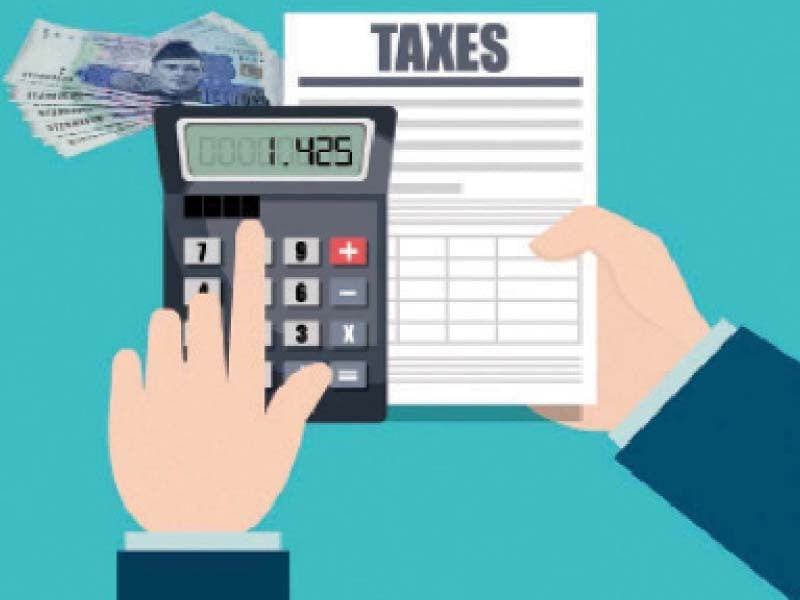
The government has decided to abolish non-filers from the tax laws and gradually ban their 15 types of activities, as it has won rare support from Pakistan's top industrialists for getting more revenues from existing filers and punishing non-compliant citizens.
The income tax returns data processed by the Federal Board of Revenue (FBR) disclosed that Pakistan's middle-income group taxpayers were in fact 94% compliant compared to the 29% compliance ratio among the 1% richest Pakistanis.
The government believes that this necessitates further tightening the noose around the return filers.
An overwhelming majority of the country's major industrialists, representatives of the corporate sector and the fast-moving consumer goods companies supported the government's new tax plan that envisages fully capturing the filers and punishing the non-filers. They extended their support during a consultative round held at the FBR headquarters.
The government is going to abolish the category of non-filers and it would also disallow use of cheques for cash withdrawals beyond a certain threshold, FBR Chairman Rashid Langrial informed the participants.
Earlier, the plan was to only ban the purchase of assets by the non-filers. But now the government would delete the definitions of non-filers, and later abolish the schedule 10th from the Income Tax Ordinance.
The schedule 10th provides double withholding tax rates for the non-filers on undertaking various transactions compared to the standard rates. "The FBR has not used the data mines available to it, thus, it is now moving towards this new plan", said Ali Pervaiz Malik, the minister of state for finance.
Gradually, 15 types of transactions by non-filers will be banned, including non-religious travel, said the FBR chairman. "You cannot create your own currency by issuing cheques as an alternative to cash, thus, Rs30 million annual limits on cash withdrawals are being proposed," Langrial stated.
He added that the information would be shared with the banks through the SBP to discourage cash withdrawals through cheques. He further said that the government would soon start purchasing those properties that were declared below the market prices in the tax returns. The provision had been introduced by former prime minister Shahid Khaqan Abbasi in 2018 but it remained non-operational.
The 2013-18 government of the Pakistan Muslim League-Nawaz (PML-N) had introduced the category of the non-filers in the law in the hope of forcing the people to come in the net by charging higher taxes from them. However, over the period, the people preferred to pay more price than becoming filers.
There were Rs1.33 trillion withholding tax payments in the last tax year, Rs423 billion had not been claimed by the payers who were likely non-filers, said Langrial. Notional filers are as big a problem as the non-filer and without simultaneously addressing the both, Pakistan's tax problems cannot be solved, said the chairman FBR.
The chairman said that out of the richest 1% workforce, comprising 670,000 individuals, only 230,000 filed their returns and accurately disclosed their incomes, said the chairman.
Out of the Rs1.32 trillion income tax gap in the category of individuals, Rs1.2 trillion short payments were by Pakistan's richest 1% people, said Langrial. Contrary to this, the poor are the most compliant persons with 94% compliance rate, said the chairman.
The minister of state for finance said that the purpose of the new transformation plan was to go after both the untaxed and the under-taxed sectors and the individuals aimed at lowering the burden on the formal sectors.
FBR Member Policy Hamid Ateeq Sarwar apprised the industrialists and their representatives that new restrictions would be imposed on withdrawing more than Rs30 million in cash annually. Those filers of income tax returns who claim more than Rs10 million in income will be allowed to buy only cars, but they must explain the source of income before purchasing a plot.
Filers with incomes below Rs10 million will need to provide explanations before purchasing a car, plot, or investing in securities and mutual funds, according to the briefing.
After adjusting the impact of inflation and economic growth, the FBR's revenues remained constant at Rs3.1 trillion annually since 2004, said Sarwar. He added that out of the Rs5.9 trillion tax gap, Rs2 trillion was on account of the income tax.
He said that 60% Pakistan's 67 million workforce was below the annual income taxable threshold of Rs600,000. There would be a ban on the non-filers on purchase of property, cars, investment in stock market and mutual funds and opening current bank accounts.
The business community supported these initiatives barring Ziad Bashir, the representative of Pakistan Retail Chains Association. Bashir Dewan, representing Pakistan Business Council, also supported the government's initiative.
The representative of the Pakistan Textiles Exporters Association, Khurram Mukhtar, and All Pakistan Textile Mills Association representative Shahid Sattar also supported the government. Asad Shah, representing the formal tobacco sector, said that those measures were good but the challenge would be in their implementation.
Arif Habib Pakistan's one of the biggest industrialists backed the proposals but said that the FBR should be careful before implementing the proposal to discourage cash transactions. Ziad Bashir said that by taking these actions against filers what message the FBR was giving to them. The FBR should allocate 3,000 new private auditors to look into the details of the non-filers, he recommended.
Sheikh Waqar, the representative of Nestle Pakistan, underscored the need for implementing the existing regulations. Abbas Akbar, representing the steel industry, backed the government and urged it to make these measures sustainable.
Rafiq, representing Jehangir Khan Tarin's sugar industry also supported the proposals and said that there should be no concept of non-registered persons doing business in Pakistan. But he said that there was a need to reduce the withholding tax rates for the wholesalers and distributors aimed at bringing them in the next ambit.
Arif Saeed from the services industry said that the government would need strong political will to implement all these measures because there would be a lot of push back the moment the government starts implementing these actions.

1718122402-0/will-ferrel-(1)1718122402-0-405x300.webp)


1726819153-0/BeFunky-collage-(18)1726819153-0-165x106.webp)



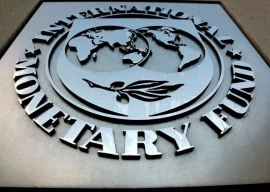
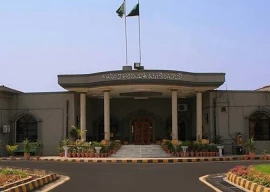
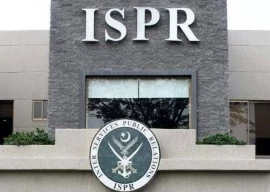
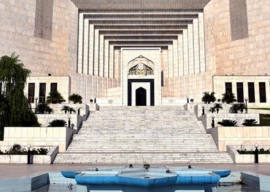
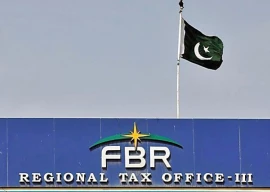






COMMENTS
Comments are moderated and generally will be posted if they are on-topic and not abusive.
For more information, please see our Comments FAQ